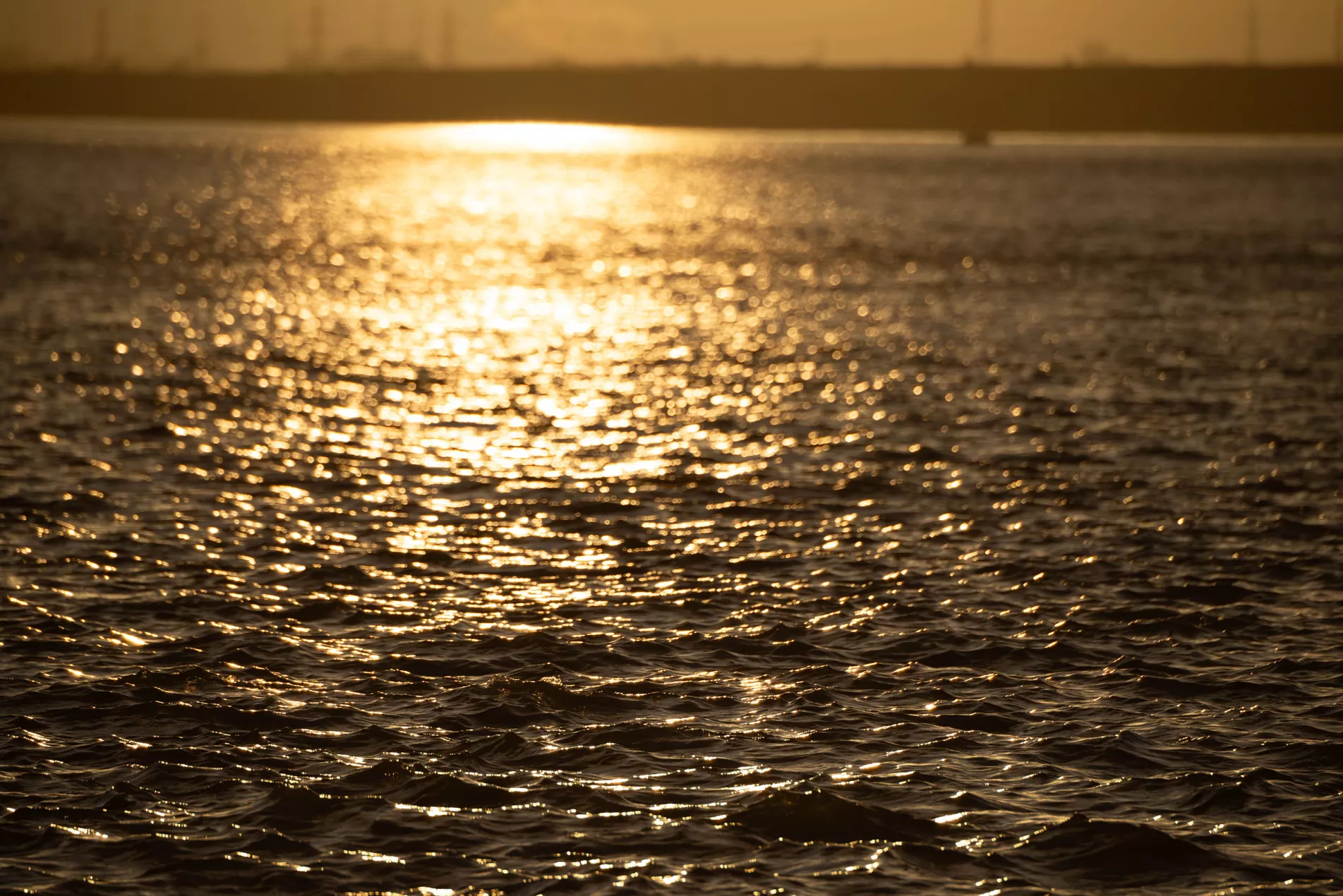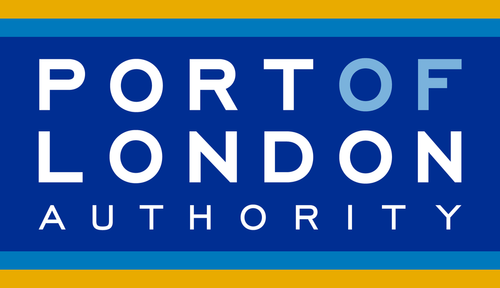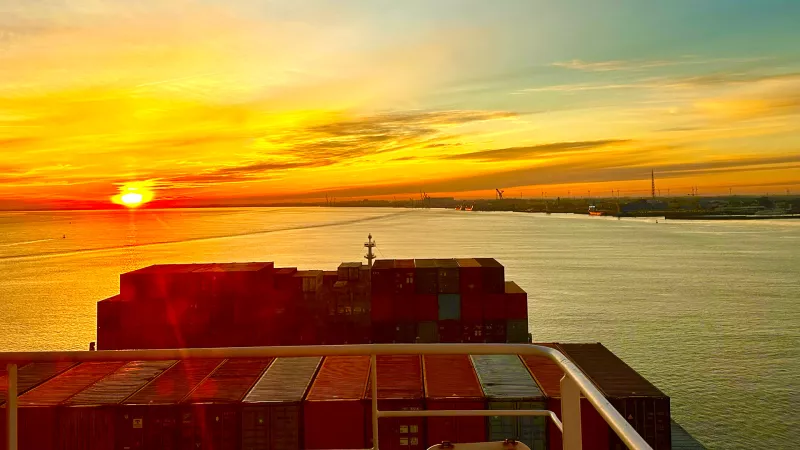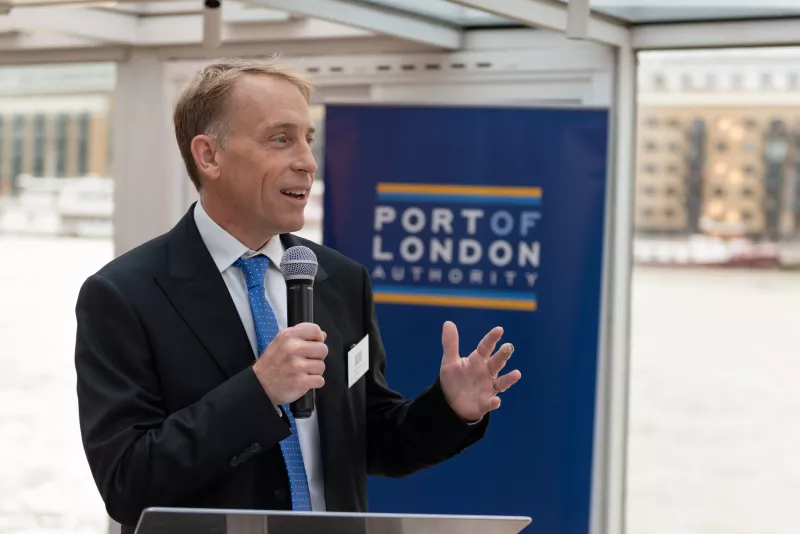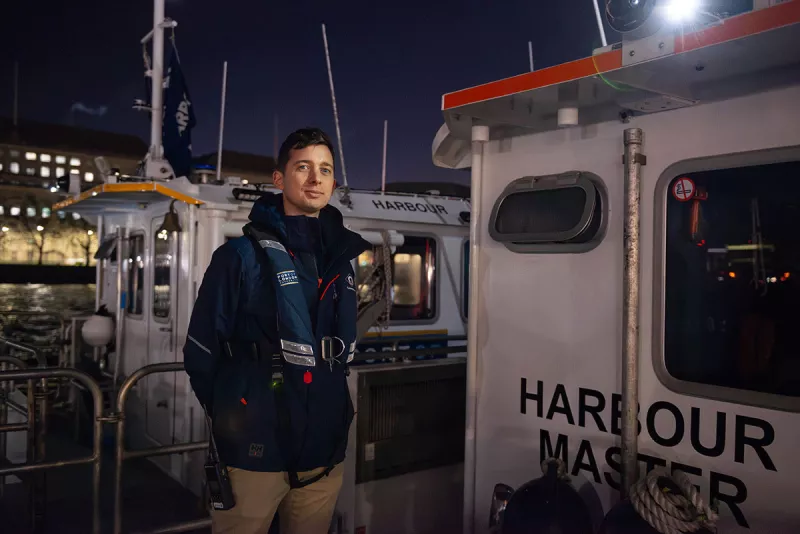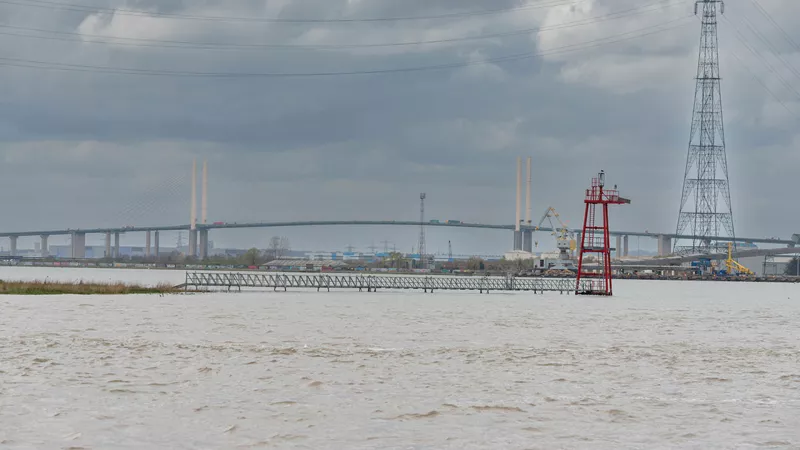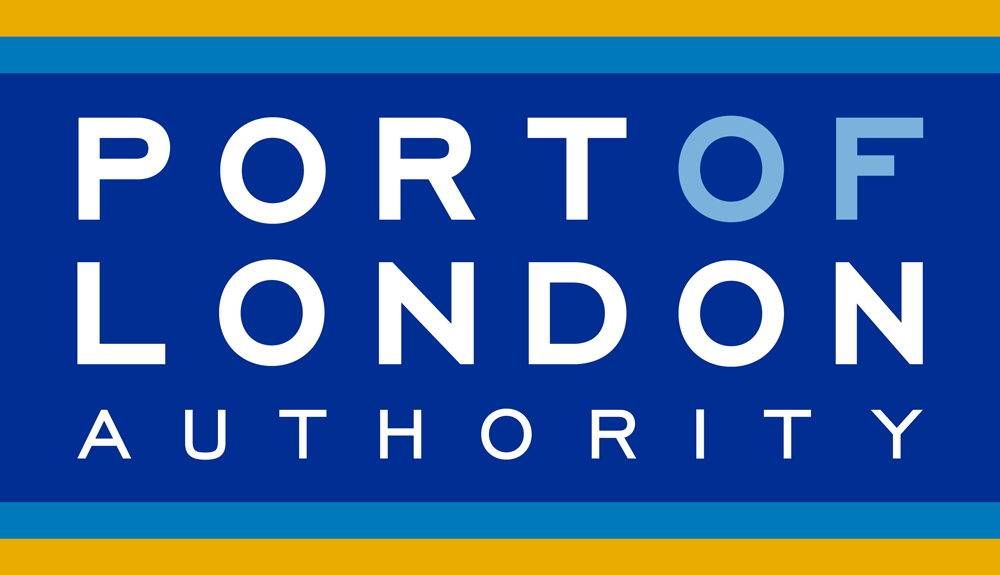Live Tides
NOTICES TO MARINERS
Charts & Surveys
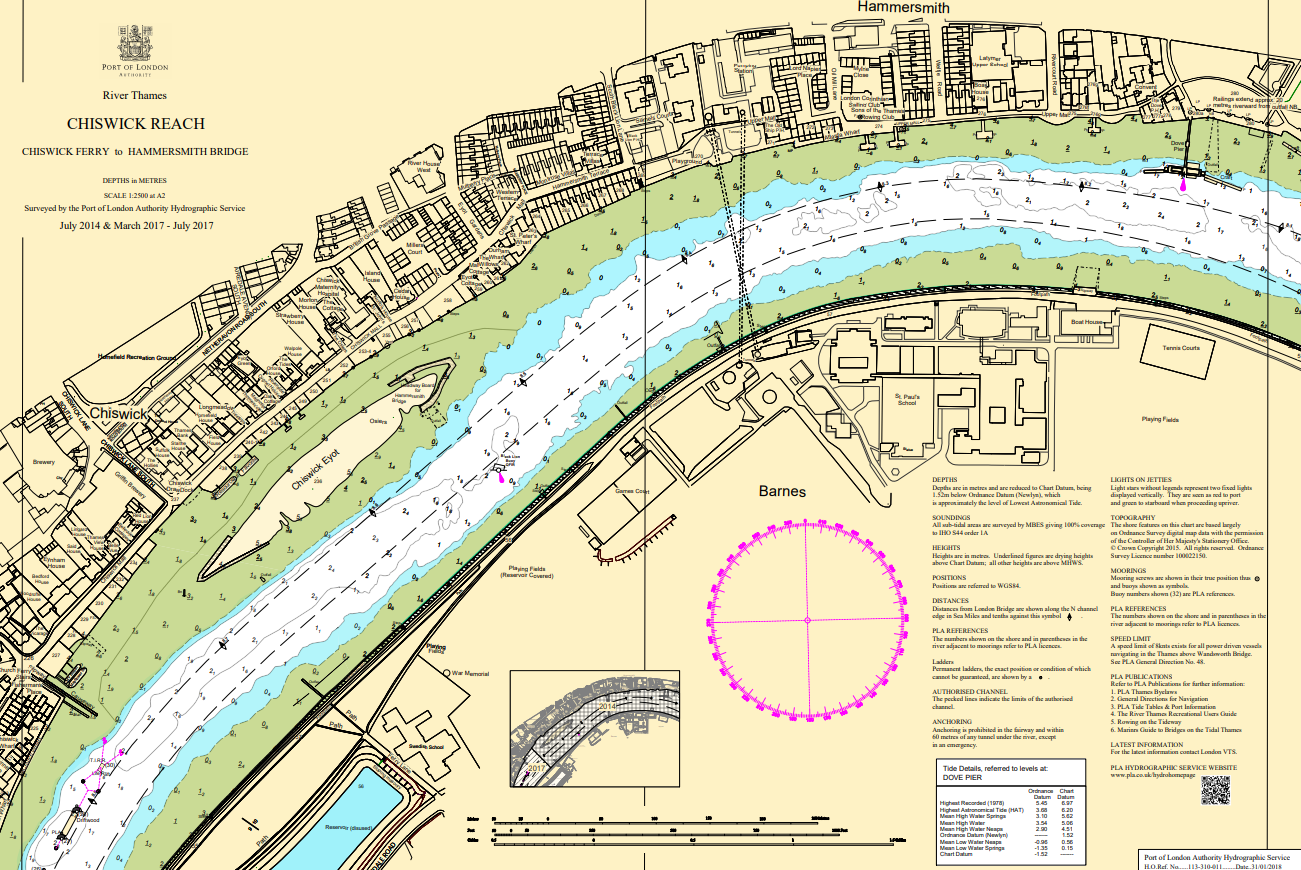
Incident reporting
Life-threatening emergencies on the river:
Call 999 and ask for the Coastguard
For near miss, safety observations and incident reporting click below
Over a century of cockling
Andrew Lawrence
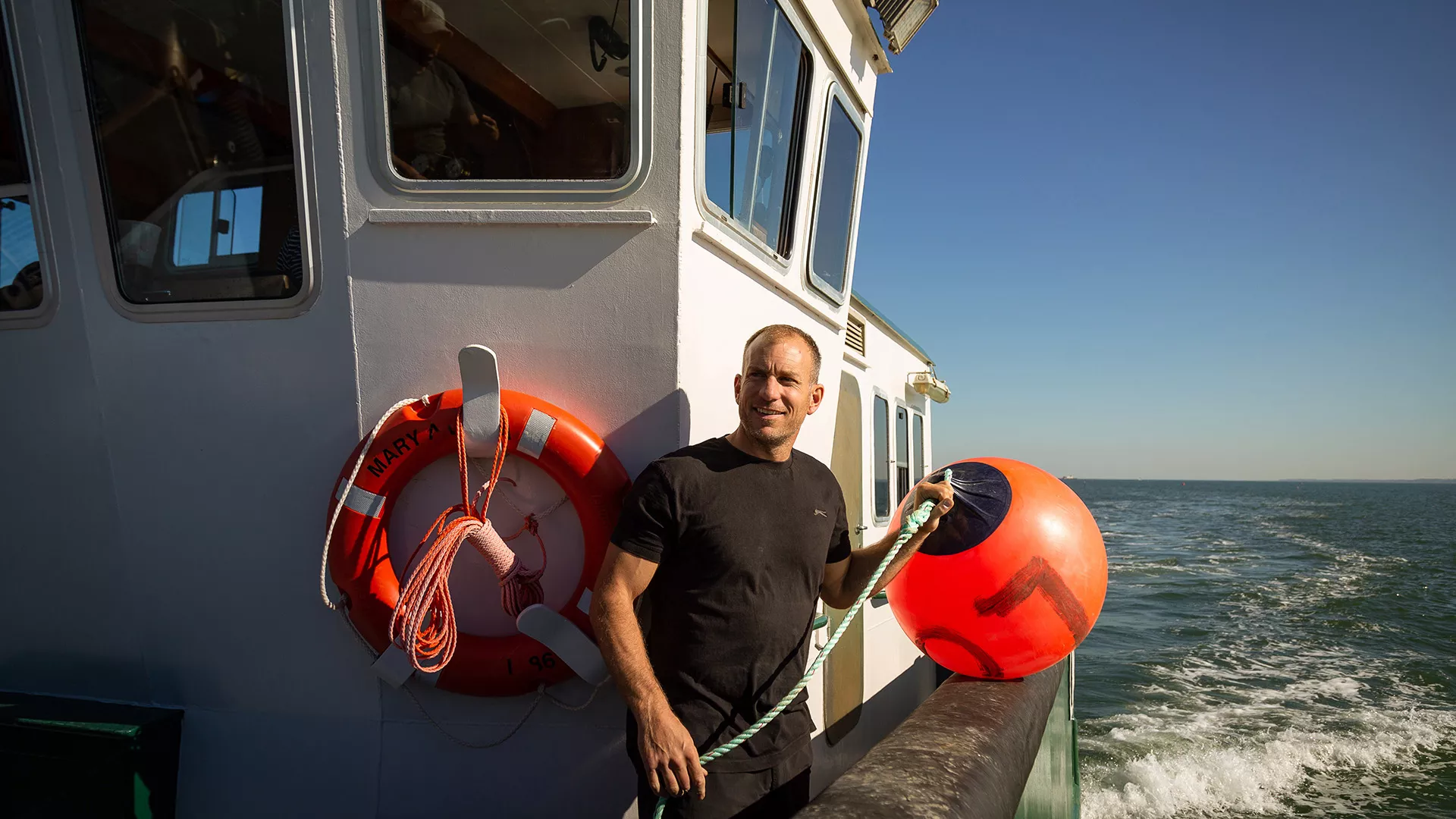
To mark World Oceans Day 2021 (8 June), this year highlighting how people depend on clean seas for their livelihoods, we meet Andrew Lawrence of Essex-based Osborne & Sons Shellfish.
Hooked on fishing
“I was born in Rochford hospital in January 1975.
“We come from a long line of fishermen, dating back several hundred years, over five generations
“My earliest memories are watching my grandad unload the cockle boat outside our café.
“As a child, I was always into fishing and sailing. Anything to do with the water, really.
“I am lucky – nowadays I am out on the river most days.
“Like most of my family, I went to the local comprehensive school. I enjoyed sport and maths mostly and still do today.
“But I always knew that I would work in the family business.
“During the school holidays, I would be allowed to go out on the boat with my uncle and great uncle.
“I started unloading the boat aged 12, and left school at 16, to work full-time for the business.
A family tradition
“The Thames has been the focus of our business for over 140 years, shrimping and cockling.
“Our original cockleboat Renown was involved in the evacuation of the troops from the beaches of Dunkirk, and sadly was blown up on its return journey.
“We have had several cockle boats built since, some locally. Our newest vessel Mary Amelia LO86 was built in Newhaven, Sussex.
“Our business premises were initially used to cook cockles straight from the boat, and then sold at the front of the building.
“With changing health regulations, our processing plant moved to the row of cocklesheds, where we are situated now, alongside our fishmongers.
Working life
I don’t really have a typical day, but it is more a bit more routine during the cockle season, from mid June to mid October.
“We leave to go out on the boat from Leigh-on-Sea, as the tide is coming in and steam to whatever cockle ground we will be working from. Once we have fished our “TAC” quota, (Total Allowable Catch), we will ideally return on the outgoing tide, or wait until the next incoming tide.
“Once we return to Leigh-on-Sea, I unload the boat with our excavator and drive the tractor to our factory, where we start the processing of the cockles.
“I oversee the factory, ensuring all our cooking standards are met, and that the end product is plump, tasty and as grit free as possible.
“Out of season, we have a multitude of maintenance, both on our boats and in the factory to ensure they are working well for the next season.
“We also ensure the smooth running of our café and fishmongers on shore.”
Surviving COVID-19
“The business has been affected by the pandemic in many ways.
“There have been shortages of products and supplies and we have had to adapt our ways of working, like most people.
“But our sales have actually gone up over the last years.
“The pandemic has served to raise awareness of the fish and shellfish industry.
“The support we have had from our local customers has been amazing. There has been a definite trend towards people wanting locally produced food.”
A growing business
“We have many customers around the rest of the country and overseas too.
“If we can get our product to you, we will!
“Our aim is to offer the best quality cockles in the country
“If you are eating cockles in the UK, it is highly possible they have come from Leigh-on-Sea.
“We source as much locally as possible, but the reality is that some species are not available in our local waters.
We are very proud to be playing our part of making the UK fishing industry has a secure, sustainable future
A changing environment?
“The weather is a big factor in our business, both on shore and also for fishing.
“The unusual weather patterns that we have been seeing create headaches for us, affecting cockles growth and our yield. Cockles need rain to grow and they do not like the hot weather.
Quick fire
- Favourite meal? Fresh cockles of course, served with vinegar and pepper.
- Will you be watching the European football championships? I will be cheering on England – and Germany.
- Claim to fame? I appeared in a Remembrance Day edition of the BBC’s Countryfile in 2017, programme, explaining Renown in the Battle of Dunkirk.
- Pet hates? Lateness. Time and tide wait for no one.
Find out more about Osbourne's fish.
Related content
Discover
